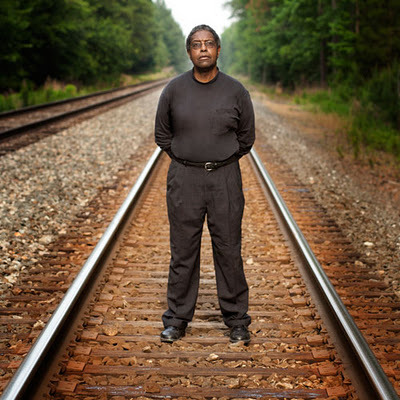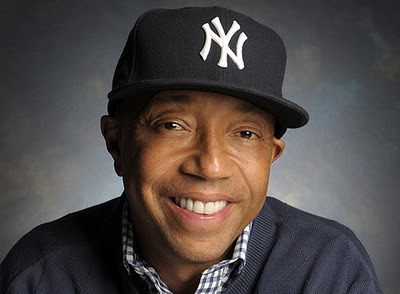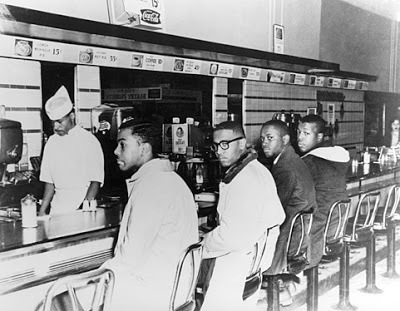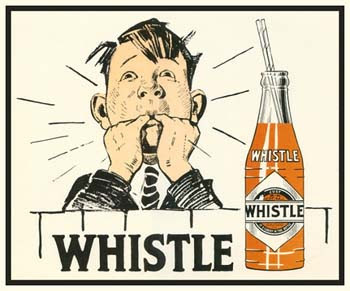Mark Anthony Neal's Blog, page 1027
February 1, 2012
William "Sandy" Darity on Affirmative Action and Academic Performance
 Affirmative Action and Academic Performance
Affirmative Action and Academic Performance
The State of Things | WUNCw/ Frank Stasio
A new study about racial differences in academic performance at Duke University is creating controversy – and it isn't even published yet. Duke economist Peter Arcidiacono and his colleagues reported that African-American students are more likely to change from being math and science majors to programs in the humanities or social sciences at a higher rate than their white counterparts.
The study also suggests that the switch to less rigorous majors was largely responsible for why the grade point averages of black undergraduates ultimately became comparable to GPAs of white students as they progressed through school. Duke's Black Student Alliance organized a protest in reaction to the research and the study has drawn heated reactions from others in the Duke community.
Host Frank Stasio reviews the report and the response to it with Arcidiacono, a professor of economics at Duke; William "Sandy" Darity, chair of Duke's African and African-American Studies Department and Arts and Sciences Professor of Public Policy, and Economics; and Nana Asante, a Duke senior and president of the university's Black Student Alliance.
Listen Here
Published on February 01, 2012 16:40
What's the Deal with Russell Simmons? Deconstructing the Black 1%

The Def Jam icon is part-activist, part-capitalist...so who is he really?
What's the Deal with Russell Simmons? Deconstructing the Black 1%by Mark Anthony Neal | Ebony.com
For far too many Americans, there is little distinction to be made among those who comprise the so-called 1%; this was made apprent recently in the dismissive reaction to the travails of locked-out NBA ballers, where the conflict was reduced to a battle between millionaires and billionaires (as if the NBA owners were not in position to set labor relations precedents—worker mobility, depressed wages, the value of labor unions—that could impact everyday American workers). The general lack of nuance with which many in this country engage the issue of wealth is symptomatic of a general inability to make broader distinctions between power and wealth. Thus it's not surprising that many lump all of the so-called 1% into one group, as if they shared common values, traveled the same routes to their wealth, or deployed their wealth to the same ends—ends that are thought to be inherently antithetical to progressive movement.
The criticism faced by #Occupy Movement supporter Russell Simmons is emblematic of a trend among critics of Black elites about their seeming contradictory support of the movement. In one critique, "The Black Millionaires of Occupy Wall Street," writer Cord Jefferson takes Simmons to task for his own business practices—like predatory pre-paid debit cards—noting that the Hip-Hop mogul's support of #Occupy is "convenient" in that it "doesn't call into question the foundation on which he's amassed a 35,000-square-foot home." Simmons' business practices are, of course, fair game—yet to think that Simmons, or any of the Black celebrities who have empathized with the movement are some how complicit in the world that the 99% are symbolically dismantling, is to not really understand how power really functions.
Simmons' depiction as a celebrity endorser of a pre-paid debit card—as figures such as Suze Orman and Lil Wayne have recently launched such cards—has recently drawn his ire. In an open letter to the "Financial Press," where Simmons compares himself to Richard Branson and Mark Zuckerburg, he writes, "With the issuance of the first RushCard, I created the first Prepaid Debit Card Account, requiring no linkages whatsoever to a consumer checking account. Today, millions of Americans manage their financial lives with the assistance of prepaid debit cards issued by UniRush and our competitors."
Yet underlying Simmons' complaint and response to the reduction of his business acumen to his celebrity is largely motivated by a dismissal of hip-hop culture and its constituents (or consumers, depending on your vantage) as anything of value. It is a well-worn accusation, that is more often on-point than not, but also highlights the classic spin of a cultural gatekeeper, who resists having to address real issues of accountability by continually highlighting his (now tenuous) relationship to hip-hop culture. Simmons may not be of a 1% that actually impacts policy in this country, like say the Koch Brothers or the substantial number of elected officials who are amongst the nation's most wealthy. Yet, his role in contemporary Black life is deserving of some level of scrutiny.
Read Full Essay @ Ebony.com
***
Mark Anthony Neal is the author of five books including the forthcoming Looking for Leroy: (Il)Legible Black Masculinities (New York University Press) and Professor of African & African-American Studies at Duke University. He is founder and managing editor of NewBlackMan and host of the weekly webcast Left of Black . Follow him on Twitter @NewBlackMan.
Published on February 01, 2012 06:27
From the Digital Crate: "What if the Greensboro Four had Twitter?"

From the Digital Crate: What If theGreensboro Four Had Twitter? by Mark Anthony Neal | NewBlackMan
February1st marks the anniversary of what I like to refer to as one of thegreatest days in American History. On that day in 1960, four young Black men—Joseph McNeil, Franklin McCain, Ezell Blair,Jr., and David Richmond—all first year students at HBCU North Carolina A&T,sat at a Whites only lunch counter at a Woolworth's department store in Greensboro, North Carolina.
Thisprotest—formally known as a sit-in—began weeks of similar protests, that wentviral throughout the American South in ways that mirror the functions of today'ssocial media. The Greensborosit-ins are widely remembered as the moment of activism that gave renewedenergy and vigor to a Civil Rights Movement that was sputtering after thesuccess of the Montgomery Bus Boycott.
TheGreensboro Four, of course, did not have access to social media such as Twitterand Facebook, but nevertheless utilized what would have been the accessibletechnology of the days like land-lines, good-old fashion word of mouth, andwhat was really the cutting edge technology of the day: a mimeograph machine. Those young folk, who would monthsafter Greensboro, go on to create the Student Non-Violent CoordinatingCommittee (SNCC), under the watchful eye of Ella Jo Baker, understoodtechnology, including television, as simply one of the tools they employed tomake their case.
CivilRights activist brilliantly exploited television cameras, helping to bring themarches in the streets straight into the living rooms of average Americans,whether they wanted to see it or not. Many activists from the era point to the role that televised footage ofyoung Black Americans being hosed down and attacked by police dogs played ingenerating sympathy for a nation that had been largely indifferent.
Thespirit of the Civil Rights Movement of the early 1960s and the role thattechnology played during that time has been recalled in the last year withregards to the Georgia Prison Strike, the Arab Spring, the #Occupy Movement andthe State murder of Troy Davis.
Whereasprisoners in Georgia State prisons used disposable cell phones to organize non-violentprotest via text messaging, Twitter and Facebook have been critical tools forthe largely young folks taking to the streets in the Middle East. In these cases, the ruling governmentsresponded by shutting down internet access and eventually cell phone andtraditional land-line coverage when protestors resorted to old-school forms ofcommunication.
AmongBlack social media users in the United States, Twitter and Facebook wereutilized by those who createdon-line petitions to protest an Ohio court decision to convict Kelly Williams-Bolarof "fraud" in response to her attempt to establish a second residency in abetter school district for her two daughters, as was also the case with thehighly visible efforts to save Troy Davis' life The efforts among, Black "digital natives" and "digitalimmigrants" (like myself) mirror recent advocacy efforts for the Jena 6, theScott Sisters, and Haitian Earthquake relief—efforts that challenge perceptionsthat social media only has amind-numbing effect on young people.
Recallingthe efforts in support of Williams-Bolar, critic and scholar Kyra D. Gaunt acknowledged that "Twittercame along it felt like a change to me." Still it's important to remember that, Social Media is simply a toolthat connects to the long established human desire to resist oppression andsuppression.
Asyoung folk, in particular, find more innovative and effective forms of SocialMedia, there will be those who seek to co-opt it for other designs. 50 years ago, Black radio was animportant cog in the ability for organizers to get their message out to theBlack masses, yet one would be hard pressed to think of Radio One—the largestBlack-owned radio company—playing such a role in this environment.
Asthe events quickly unfold throughout the world, it will become clear that many arelooking at Social Media in a new light, whether its Twitter, Facebook or thememories of four young men sitting at a lunch counter in Greensboro, NC.
***
Mark Anthony Neal is the author of five books including the forthcoming Looking for Leroy: (Il)Legible Black Masculinities (New York University Press) and Professor of African & African-American Studies at Duke University. He is founder and managing editor of NewBlackMan and host of the weekly webcast Left of Black . Follow him on Twitter @NewBlackMan.
Published on February 01, 2012 06:12
January 31, 2012
Trailer: The Invisible War
An investigative and powerfully emotional examination of the epidemic of rape of soldiers within the U.S. military, the institutions that cover up its existence and the profound personal and social consequences that arise from it.
Official Selection 2012 Sundance Film Festival
Published on January 31, 2012 03:32
Ebru Today: James Braxton Peterson on Obama-Brewer and Beyond
James Braxton Peterson is Director of Africana Studies and Associate Professor of English at Lehigh University and the author of the forthcoming Major Figures: Critical Essays on Hip Hop Music (Mississippi University Press). Follow him at @DrJamesPeterson.
Published on January 31, 2012 03:24
January 30, 2012
Left of Black S2:E17 | Memories of the Chitlin Circuit and Education in the Digital Age
Left of Black S2:E17 | January 30, 2012
Memories of the Chitlin Circuit andEducation in the Digital Age w/ Professor GuthrieRamsey and Professor Cathy Davidson
Left of Black Host and DukeUniversity Professor Mark Anthony Nealis joined via Skype© by University of Pennsylvania professor, author, andmusician Guthrie Ramsey. Neal andRamsey discuss the release of The Colored Waiting Room ,a new recording from Ramsey's band Dr.Guy's MusiQology. The twoscholars discuss the idea of "coloredwaiting rooms" as metaphors for the private aspects of Black culture and howcritical such spaces were to the cultivation of Black culture. Later, Neal isjoined in the Left of Black studio byCathy Davidson, professor of Interdisciplinarystudies and English at Duke University. Davidson is the author of Now You See It: How the Brain Scienceof Attention Will Transform the Way We Live, Work, and Learn The Duke colleagues discuss the impact of digital technology in the classroom andwhether infants are aware of race.
***
Left of Black is a weekly Webcasthosted by Mark Anthony Neal and produced in collaboration with the John Hope Franklin Center at Duke University.
***
Episodes of Left of Blackare also available for download @ iTunes U
Published on January 30, 2012 18:43
Whistling Dixie (the remix): The Southern Strategy in the Age of Color-Blind Racism

WhistlingDixie (the remix): The Southern Strategy in the Age of Color-Blind Racism byDavid J. Leonard | NewBlackMan
Inrecent weeks, with the GOP establishment coming to the aid of Mitt Romney andbecause of Newt Ginrich's efforts to sell himself as an outsider, an increasinglyvisible narrative has emerged: as the anti-GOP establishment. Given Newt's racial politics and hisentire campaign strategy, it is hard to think of Newt as anything but the GOPestablishment.
Atthe same time, there has been a growing sentiment about the hegemony ofcolorblind racism within the GOP. "Colorblind racism is the new normal in American conservative politicalthought," writes EdwardWyckoff Williams. The "2012Republican candidates are using egregious signals and dog whistles to inciteracial divisiveness as an effective tool for political gain. But whenconfronted about the nature of their offensive rhetoric, the answer is eitheran innocuous denial or dismissive retort." The codes ordog whistle politics are not new, nor is the denial. While the audacity of race denial may be on the rise, theclarity of the GOP's race politics have been on full display. No secret decoder is necessaryespecially as we look at the larger history of race and the GOP.
Likeso many of his fellow competitors, Newt's racial demagoguery, his demonizationof people of color, and his efforts to scapegoat have been a daily realityduring the 2011-2012 GOP presidential primary. This is nothing new from Newt,who has made his career on the demonization of "welfare moms," "illegals" and a "food stamp president." In 2007, Newt took exception withbilingual education, announcing: "We should replace bilingual education withimmersion in English so people learn the common language of the country andthey learn the language of prosperity, not the language of living in aghetto."
Thishas continued during the current election cycle with his recycling of theMoynihan report and his policy initiatives focusing on teaching black kids awork ethic. The language,the policies, and the centrality of race illustrate the profound ways that NewtGingrich is the GOP establishment. As the voice box for the racial ideologies and the torchbearer for theGOP's southern strategy (demonizing people of color in hopes of galvanizingwhite voters to support a party that doesn't represent their economicinterests), Newt's denied GOP credentials is almost laughable.
Thisis the party of Nixon, whose southern strategy sought to scapegoat AfricanAmericans. This is the same man,who talked about "Negro bastards" who "live like a bunch ofdogs" on welfare rolls. Thisis the GOP that was led by Richard Nixon, who one said:
BillRogers has got — to his credit it's a decent feeling — but somewhat sort of ablind spot on the black thing because he's been in New York," Nixon said."He says well, 'They are coming along, and that after all they are goingto strengthen our country in the end because they are strong physically andsome of them are smart.' So forth and so on.
Myown view is I think he's right if you're talking in terms of 500 years,"he said. "I think it's wrong if you're talking in terms of 50 years. Whathas to happen is they have be, frankly, inbred. And, you just, that's the onlything that's going to do it, Rose.
Thisis the party of Reagan, who described outrage from working Americans over thesight of a "strapping young buck usingfood stamps to buy T-bone steaks at the grocery store." When not demonizing black men, he spokeabout "welfare queens" in Chicago, "who drove a Cadillac and had ripped off $150,000 fromthe government using 80 aliases, 30 addresses, a dozen social security cardsand four fictional dead husband." This is the same Reagan, who started his presidentialcampaign in 1980 in Philadelphia, Mississippi with an "ode to state's rights,"a theme that continued with his defense of segregationist Bob Jones Universityand his denunciation of the voting right act as "humiliating to theSouth." As the patriarch ofthe party, it is no wonder that racist rhetoric and appeals are central to the2012 campaign.
Thisthe party who used Willie Horton, who the Bush campaign portrayed as adangerous super-predator, lurking in dark alleys, ready to kill and rape. This is the party of Trent Lott, who atthe birthday party of segregationist Strom Thurmond announced, "WhenStrom Thurmond ran for president, we voted for him. We're proud of it. And ifthe rest of the country had followed our lead, we wouldn't have had all theseproblems over all these years, either."
Thisis the party that brought us BarbaraBush, who after Hurricane Katrina, announced:
Almost everyone I've talked to says we're going tomove to Houston...What I'm hearing, which is sort of scary, is they all want tostay in Texas. Everybody is so overwhelmed by the hospitality. And so many ofthe people in the arena here, you know, were underprivileged anyway, so this --this is working very well for them.
Thisis the party that has used ACORN, Jeremiah Wright, and blamed minorityhomeowners for the recession. Itis the party that popularized Barack Hussein Obama and used "pallin round" withterrorists with great frequency.
Thisis the party of Rick Santorum, who routinely demonizes Islam, who has calledfor a "long war" with Muslims: "What must we do to win [againstIslam]? We must educate, engage, evangelize and eradicate." This is the party of scapegoating"illegal immigrants," the criminalblack man, the Arab terrorist; it is the party of fear and division,and one that is "addicted" to race-baiting.
Newt'scampaign, his constant deployment of racial codes, his demonization ofcommunities of color, and efforts to mobilize white voters is representative ofthe GOP. The frames, dailyrhetoric of racism and demonization, which has been central to Republicanpolitics for the last 40 years, is in fact the basis of his campaign. If itwalks like an elephant, talks like an elephant, demonizes like an elephant, andstomps all over other people like an elephant, well he must be an elephant.
***
David J. Leonard is Associate Professor in the Department of CriticalCulture, Gender and Race Studies at Washington State University, Pullman. Hehas written on sport, video games, film, and social movements, appearing inboth popular and academic mediums. His work explores the political economy ofpopular culture, examining the interplay between racism, state violence, andpopular representations through contextual, textual, and subtextual analysis.He is the author of Screens Fade toBlack: Contemporary African American Cinema and the forthcoming After Artest: Race and the War on Hoop(SUNY Press). Leonard is a regular contributor to NewBlackManand blogs @ NoTsuris.
Published on January 30, 2012 17:38
January 29, 2012
January 28, 2012
Remembering "The Colored Waiting Room" and the "Myth" of a Culture of Distraction on the January 30th 'Left of Black'
Remembering"The Colored Waiting Room" and the "Myth" of a Culture of Distraction on the January 30th'Left of Black'
Left ofBlack Hostand Duke University Professor MarkAnthony Neal is joined via Skype© by University of Pennsylvania professor,author, and musician Guthrie Ramsey.Neal and Ramsey discuss the release of The Colored Waiting Room ,a new recording from Ramsey's band Dr.Guy's MusiQology. The twoscholars discuss the idea of "coloredwaiting rooms" as metaphors for the private aspects of Black culture and howcritical such spaces were to the cultivation of Black culture. Later,Neal is joined in the Left of Blackstudio by Cathy Davidson, professorof Interdisciplinary studies and English at Duke University. Davidson isthe author of Now YouSee It: How the Brain Science of Attention Will Transform the Way We Live,Work, and Learn The Duke colleagues discussthe impact of digital technology in the classroom and whether infants are awareof race.
***
Left of Black airs at 1:30 p.m. (EST) on Mondays on the Ustreamchannel: http://www.ustream.tv/channel/left-of-black. Viewers are invited to participate in a Twitterconversation with Neal and featured guests while the show airs using hash tags#LeftofBlack or #dukelive.
Left of Blackis recorded and produced at the JohnHope Franklin Center of International and Interdisciplinary Studies at DukeUniversity.
***
Follow Left of Black onTwitter: @LeftofBlackFollow Mark Anthony Neal onTwitter: @NewBlackManFollow Guthrie Ramsey onTwitter: @DrGuyMusiQology Follow Cathy Davidson onTwitter: @CathyNDavidson
###
Published on January 28, 2012 11:57
Mark Anthony Neal's Blog
- Mark Anthony Neal's profile
- 30 followers
Mark Anthony Neal isn't a Goodreads Author
(yet),
but they
do have a blog,
so here are some recent posts imported from
their feed.



